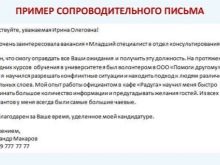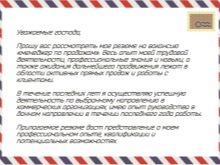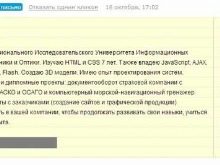A cover letter for a resume: what is it and how to write it?

Today, getting a job is a rather lengthy and laborious process. You will need to prepare a large number of documents, pass an interview (and sometimes several), internship, training, complete a test task, etc. Due to such a strict selection, not all candidates (this applies even to highly qualified experienced specialists) can end up getting a job.
One of the innovations in employment is a cover letter. The writing of such a document raises a large number of questions and doubts among applicants (both young specialists and experienced workers). What is a cover letter and how to write it correctly? Which sections should be included in the structure of the document and which mistakes should be avoided? You will find answers to these and some other questions in our material.
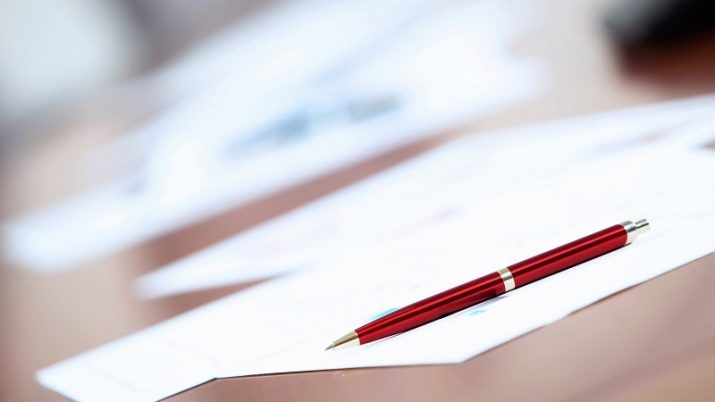
What it is?
Quite often, when applying for a job, the employer asks applicants for the position to provide not only their resume, but also a cover letter to it. Such a request may cause bewilderment among both beginners and experienced specialists who, when applying for a company, have never come across such accompanying documents and do not know what they look like. In our article we will try to clarify all the points that interest you.
You should start by asking what a cover letter is. At its core this document allows you to reveal yourself as a candidate for the position more fully, move away from the strict structure of the resume, tell the employer why your candidacy is the most suitable, talk about your advantages in comparison with other applicants, describe your education and work experience in more detail.
While your cover letter has a flexible structure, you shouldn't forget that it is an official document, so it must be drawn up and drawn up in accordance with all the rules. In addition, you should take into account the fact that many employers, trying to check the attentiveness of the applicant, even in the announcement indicate all the requirements that are put forward for the letter (for example, a specific structure may be indicated or even a code word that must be used).
In this regard, it is very important to read the announcement to the end and be as attentive as possible.
It is also important that many employers begin to familiarize themselves with the applicant's candidacy not by studying the resume, but by analyzing the cover letter... That is why in no case should you be dismissive of the preparation of a document and consider that a competently drawn up professional resume will be enough - a situation may arise when the employer will add up the first impression of you as a future employee of the company on the basis of the cover letter.

Structure
Any cover letter that comes with a resume must be drawn up in accordance with all the rules and taking into account all the requirements of the employer. Let's look at the structure of this document and figure out what you usually need to write in each section.
Greetings
Start your cover letter with a greeting. Despite the existence of such a rule, many applicants ignore it. This can ultimately be a big disadvantage in your cover letter when compared to documents that have been submitted by other job seekers. If you do not know the name and patronymic of the person who will be reading your letter, you can write a neutral "hello", "hello" or "good afternoon." However, it is advisable to do this only in the most extreme cases.
It is best not to be lazy and conduct a study of the company in which you want to find a job, and find out exactly who will read your letter. This can be the head and an ordinary employee of the personnel department, the head of the enterprise, etc. If necessary, you can also call the organization and clarify this issue (however, this should be done with delicacy and tact).
After you have found out the personal details of the person who will read your cover letter, you can formulate your welcome speech more personalized. For example, you can write "Hello, dear Ivan Ivanovich."
Cover letters of those people who were not too lazy to find out more detailed information about the company will stand out favorably against the general background. It is this type of applicant that is more likely to receive an invitation for an interview.

Main part
The main body of the cover letter is the most important block of this document. With its help, the employer finds out the information he is interested in about you, and you, in turn, can describe yourself from the best side.
In the business world, there is no strict structure for building this block. However, one way or another, but in this part you have to answer a few basic questions.
- The first thing you need to note is where you found out about a particular job. In this regard, you need to be extremely frank and honest. For example, you can write about the information you read on the city notice board or on the website of the local employment center. Do not hesitate to tell the truth even then if friends or relatives who already work at the enterprise told you about the vacancy.The employer will certainly appreciate this sincerity. That being said, keep in mind that a cover letter is a business document, so stick to the appropriate writing style.
- Next, you need to write what position you are applying for. It is important to correctly indicate its title (in this case, be guided by the job description). Here you can also describe what functions you are ready and able to perform within the framework of your job responsibilities.
- When writing a cover letter, in no case should you forget about the motivation part. In it, you should write about what attracted you to this particular vacancy and this particular company. In this regard, it is important to carry out thorough preparatory work - to analyze information about the company (you can use the official website of the company, as well as any other sources on the Internet). It is important that you are aware of the specific specialization of the enterprise, the history of its formation, the internal structure and management. So, if you are a doctor and want to get a job in a prestigious and modern clinic, then you can indicate that you are interested in research work carried out by the organization.
- In your cover letter, it is important to explain why your candidacy is the best fit for this position. In this regard, you can describe a similar work experience (for example, you have already worked as a general practitioner for 10 years in another clinic). It is also important to indicate those valuable professional skills and abilities that will help you in your work (for example, knowledge of laboratory research methods or the ability to work in complex specialized computer programs). In doing so, for the most part, you should focus on those skills that will help you stand out from the crowd of applicants.
- At the end of the block, you can provide additional information. (for example, write about why you decided to become a doctor or talk about additional continuing education courses that you have taken). You can also clarify the controversial points of your resume. For example, talk about why you left your previous job.
This way, you will fully fill out the basic information block and be able to move on to the final part of the cover letter.

Conclusion
The final part of your cover letter is pretty important because it can reinforce or completely destroy the employer's opinion of you as a professional, which the employer has developed after a detailed study of the main part of your accompanying document.
In the final part it is important to be attentive and polite, to show your respect. Thus, job seekers often thank the employer for their attention. It is also a good idea to complete a business document with a face-to-face meeting offer that will encourage the employer to invite you for a face-to-face interview. You can write that you are ready to answer your questions in person. Thus, you will make it clear to the employer that you are very interested in getting the position.
At the same time, in no case should you express your despair and needs at the place of work (even if you have been in search for a long time).
Parting
Farewell, like greeting, is built on the principle of personalization. If possible mention the name and patronymic of the employee who read the letter again. You can also wish a good day.
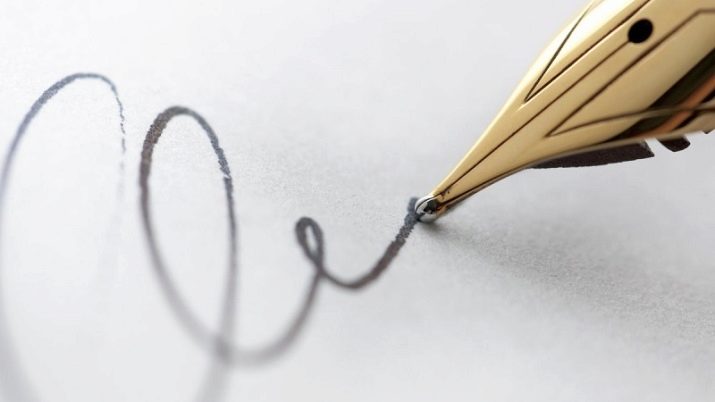
Contacts
Finish your cover letter with your contact information. Wherein you should not be afraid of the fact that such information is already present in the resume... First, listing personal contact information at the end of any business document is simply a rule of good form and business ethical communication.Secondly, your cover letter (provided that you followed all our recommendations) will most likely make a good impression on the employer, he may want to contact you immediately, or he will write your phone number on a separate list, which includes all candidates. who will be invited for further interviews.
Thus, specifying contact information (phone number, e-mail, instant messengers) will greatly simplify the work of the personnel department and save their time. Accordingly, you will once again prove that you are a professional and experienced worker who will become a valuable addition to the company's team.
Remember that in a cover letter, as opposed to a resume, all blocks should flow smoothly into each other. You should not write their title and approach only formally to the preparation of the document.
As a result, your text accompanying the resume should resemble a complete and uniform letter from the applicant to the employer (hence the name of the document).

How to write correctly?
You can competently write a cover letter required to apply for a vacancy without any experience in writing such documents. In doing so, it is important to adhere to some standard rules in order to make a good impression on the employer.
- Brevity. The cover letter should be short and concise: it is desirable that it should not exceed 1 page in length. The thing is that in the process of searching for a suitable candidate for the position, the employer receives a huge number of documents from a large number of applicants. Therefore, if you compose a simple but interesting letter, then your candidacy will certainly be considered.
- Semantic content. Don't write a fancy or original cover letter. Such a document should fulfill one specific purpose - to help the employer assess the level of your professionalism and your competencies.
- Writing style. Remember that a cover letter is an official document, so the most successful choice of writing style is formal business. It is not necessary to use artistic techniques of the Russian language (for example, comparisons, metaphors, epithets, etc.), and the use of colloquial words and phrases is also prohibited. When writing a document, refer to the reader as "you".
- Personalization. In order to be hired, you must send your employer the most personalized and customized cover letter possible. Remember that for each company you will have to write a separate document, since in the main part of the letter you must tell about what exactly attracted you to a specific position and a specific company, and for this you need to do a lot of preparatory work.
- Uniqueness. Don't use cover letter templates found on the internet. You can focus on well-written and successful examples, but under no circumstances copy or rewrite them completely.
- Grammatical correctness. When sending a letter, re-read it several times, ask your relatives or friends to do it, use special services. One way or another, but you must be absolutely sure that your letter is completely free of any typos, all punctuation marks are correctly placed and all words are correctly written. Annoying grammatical mistakes will ruin the impression of you, even if you are a highly qualified expert and fully meet all the other requirements.
- Registration... Make sure your letter is beautifully designed. To do this, use a consistent font and alignment.
- Recommendations. You can attach positive references from employers from previous jobs with your cover letter. They will help the new leader make sure that you are a specialist who can be trusted.
By writing a cover letter with all our recommendations in mind, you are sure to grab the employer's attention and get your dream job.

Common mistakes
When writing a cover letter it is important to avoid a number of common mistakes.
- Lack of specifics... This means that when writing a cover letter, you should not use such general phrases as "I am a qualified professional" or "I have a lot of work experience." Each phrase should be supported by specific data.
- Retelling the summary. A cover letter is a separate document that gives you the opportunity to reveal yourself more fully as a professional and as a person. When writing it, you should not just copy the information that you have already indicated in your resume.
- Personal information. In a letter, you should not retell the details of your biography. It is important to indicate only the information that is directly relevant to the case.

Samples
Regardless of your specific occupation, you may be asked to provide a cover letter when applying for a job. Therefore, knowledge of the rules for writing it will be useful to everyone: makeup artist, clerk, flight attendant, bank employee, auditor, personal assistant, etc.
Let's look at a few examples of how to write a cover letter. You can be guided by them when drawing up a personal document.
